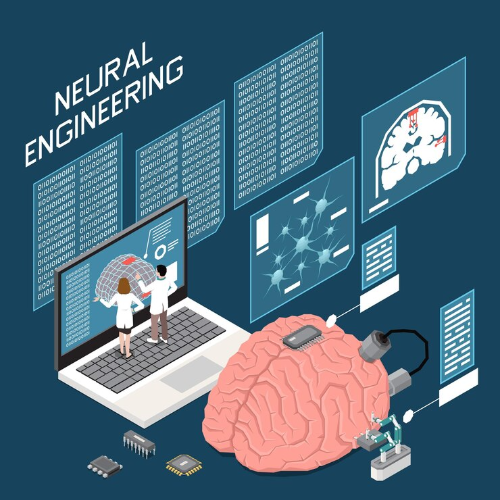
In the ever-evolving landscape of technology, Apple has consistently been at the forefront of innovation. The introduction of Apple Intelligence marks a significant milestone in this journey. This groundbreaking personal intelligence system integrates powerful generative models at the core of iPhone, iPad, and Mac, promising to revolutionize the way users interact with their devices. This article explores the capabilities, features, and implications of Apple Intelligence, and how it sets the stage for a new era of personal computing.
The Core of Apple Intelligence
1. What is Apple Intelligence?
Apple Intelligence is a sophisticated personal intelligence system designed to enhance user experience by leveraging advanced generative models. These models are embedded into the operating systems of iPhone, iPad, and Mac, providing users with intuitive, smart, and highly responsive interactions. Apple Intelligence goes beyond traditional AI by offering personalized solutions and anticipatory actions based on user behavior and preferences.
2. Integration with Apple Ecosystem
Apple Intelligence seamlessly integrates with the entire Apple ecosystem, ensuring a cohesive and unified experience across all devices. Whether it’s a MacBook, iPhone, or iPad, users will find Apple Intelligence working harmoniously to deliver personalized recommendations, streamline workflows, and enhance productivity. This integration underscores Apple's commitment to providing a holistic and interconnected user experience.
Key Features of Apple Intelligence
1. Personalized Assistance
One of the standout features of Apple Intelligence is its ability to provide personalized assistance. By analyzing user habits, preferences, and routines, Apple Intelligence can offer tailored suggestions, reminders, and actions. For instance, it can recommend apps based on usage patterns, suggest optimal times for meetings, and even automate routine tasks, making everyday interactions more efficient and enjoyable.
2. Enhanced Privacy and Security
Privacy and security are paramount in Apple’s design philosophy, and Apple Intelligence is no exception. The system is built with robust security measures to ensure that user data is protected. Apple Intelligence processes information on-device whenever possible, minimizing the need to share data with external servers. This approach not only safeguards user privacy but also enhances the responsiveness and reliability of the system.
3. Natural Language Processing
Apple Intelligence leverages state-of-the-art natural language processing (NLP) capabilities, enabling it to understand and respond to user queries in a conversational manner. This feature allows users to interact with their devices using natural language, making commands and searches more intuitive. Whether it’s drafting an email, setting a reminder, or searching for information, Apple Intelligence makes the process seamless and user-friendly.
4. Contextual Awareness
Contextual awareness is another key component of Apple Intelligence. The system can recognize and adapt to the context of user interactions, providing relevant information and actions based on the situation. For example, if a user is writing an email about a meeting, Apple Intelligence can automatically insert meeting details and suggest attachments. This contextual understanding enhances productivity and reduces the cognitive load on users.
Implications for the Future
1. Transforming User Interactions
The introduction of Apple Intelligence is poised to transform how users interact with their devices. By making interactions more intuitive and personalized, Apple Intelligence reduces the complexity of tasks and enhances overall user satisfaction. This transformation is likely to set new standards for personal computing, influencing the development of future technologies.
2. Impact on Productivity
Apple Intelligence has the potential to significantly boost productivity for both individual and professional users. By automating routine tasks, providing smart recommendations, and offering seamless integration across devices, Apple Intelligence helps users save time and focus on what matters most. This increased efficiency can lead to greater innovation and creativity in various fields.
3. Privacy and Ethical Considerations
As with any advanced technology, the implementation of Apple Intelligence raises important privacy and ethical considerations. Apple’s emphasis on on-device processing and robust security measures addresses some of these concerns. However, ongoing vigilance and transparency will be crucial to maintaining user trust and ensuring ethical use of AI technologies.
4. Setting the Stage for Future Innovations
Apple Intelligence not only enhances current user experiences but also lays the groundwork for future innovations. As AI and machine learning technologies continue to evolve, Apple Intelligence will likely incorporate new advancements, further expanding its capabilities. This continuous improvement will keep Apple at the forefront of technological innovation, shaping the future of personal computing.
Conclusion
Apple Intelligence represents a significant leap forward in the realm of personal computing. By integrating powerful generative models into the core of iPhone, iPad, and Mac, Apple has created a system that is both intuitive and highly responsive. The personalized assistance, enhanced privacy, natural language processing, and contextual awareness offered by Apple Intelligence promise to revolutionize user interactions and boost productivity. As we look to the future, Apple Intelligence sets the stage for continued innovation, ensuring that Apple remains a leader in the technology industry.
'이슈' 카테고리의 다른 글
| 내달부터 직장인 연금보험료 최대 1만2천150원 인상 (0) | 2024.06.12 |
|---|---|
| 서울시, 북한 오물풍선으로 인한 시민 피해보상…신고 접수!! (0) | 2024.06.12 |
| 그룹 방탄소년단(BTS) 멤버 진, 6월 12일 군 복무 마치고 제대!! (1) | 2024.06.12 |
| 손흥민, 이강인, 황희찬 '최강 삼각편대 출격!' 중국전 선발 라인업 발표!! (0) | 2024.06.12 |
| 연신내역 감전사고에 “완전단전, 2인1조 안 지켜져···인력부족·업무과중 탓” (0) | 2024.06.11 |
| Celtics Beat Mavericks 105-98, Take 2-0 Lead in NBA Finals as Series Heads to Dallas (0) | 2024.06.11 |
| 北오물풍선 때 부하들과 회식: 1사단장 직무배제…“신뢰 저하” (0) | 2024.06.09 |
| Florida Beach Vacation Hotspot Closed After Back-to-Back Shark Attacks (0) | 2024.06.09 |



